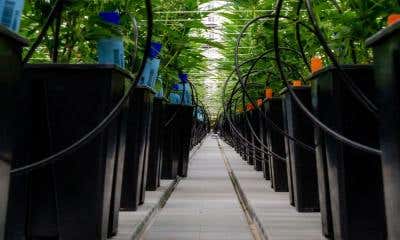Cannabis and hemp are members of the same plant genus, Cannabis, but they have distinct characteristics and applications. Understanding the differences between these two plants is essential for comprehending their uses and the legal framework surrounding them.
Understanding the Botanical Differences
Cannabis and hemp differ primarily in their morphology. Cannabis plants are typically shorter, bushier, and produce more resinous flowers, while hemp plants are taller, slimmer, and have fewer flowers. These physical variations result from their different genetic profiles.
Chemical Composition: THC vs. CBD
The most significant difference between cannabis and hemp lies in their chemical composition. Cannabis is known for its high levels of THC (tetrahydrocannabinol), the psychoactive compound responsible for its intoxicating effects. In contrast, hemp contains minimal THC but higher levels of CBD (cannabidiol), a non-intoxicating compound with various potential therapeutic benefits.
Cultivation and Legal Considerations
Cultivation practices and legal regulations for cannabis and hemp vary widely across jurisdictions. Cannabis cultivation is often subject to strict regulations due to its psychoactive nature. On the other hand, hemp cultivation has been legalized in many regions due to its industrial and commercial applications.
Industrial Uses of Hemp
Hemp has a rich history of industrial use and offers a wide range of applications. It can be used in the production of textiles, paper, biofuels, construction materials, bioplastics, and more. Hemp fibers are known for their strength and durability, making them suitable for various industries.
Medicinal and Recreational Uses of Cannabis
Cannabis has been used for medicinal and recreational purposes for centuries. Its potential therapeutic benefits include pain relief, nausea reduction, appetite stimulation, and management of various medical conditions. Additionally, recreational cannabis use is valued for its psychoactive effects and relaxation properties.
Hemp-derived CBD Products
Hemp-derived CBD products have gained popularity for their potential health and wellness benefits. CBD-infused oils, tinctures, topicals, and edibles are widely available in many markets, offering consumers the potential therapeutic effects of CBD without the intoxicating effects of THC.
Scientific Research on Cannabis and Hemp
Scientific research on cannabis and hemp is expanding, shedding light on their potential benefits and exploring their applications across various fields. Ongoing studies investigate the therapeutic properties of CBD, the interactions between cannabinoids and the human body, and the cultivation practices for both cannabis and hemp.
Cannabis and hemp are distinct plants with unique characteristics and uses. While cannabis is known for its psychoactive effects and medicinal applications, hemp is prized for its industrial versatility and potential therapeutic benefits of CBD. Understanding the differences between cannabis and hemp is essential for appreciating their respective roles in various industries and their potential impact on health and well-being.
















